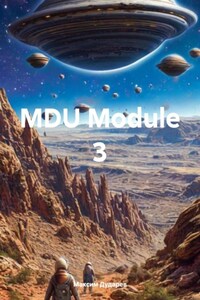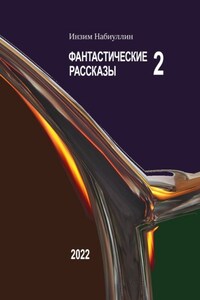Chapter 1: The Question of Alien Life
As we gaze upon the stars, the question arises: Are we truly alone in the universe? This query has fascinated humanity for centuries, and as an astrophysicist, it is not merely a philosophical consideration but a profound scientific exploration. Our universe is home to billions of galaxies, each containing millions or even billions of stars. With such astronomical numbers, it's plausible to believe that somewhere among the trillions of planets, life must have found a way to flourish. But despite our sophisticated technology, such as radio telescopes and space probes, we have yet to detect direct evidence of extraterrestrial life. This dilemma leads us directly into the heart of the famous Fermi Paradox: if the universe is so vast and life is likely, then why have we not encountered anyone?
One possible explanation is that intelligent life is exceptionally rare. Life itself may be common, but intelligence might require a unique set of circumstances. Alternatively, life might be abundant, but civilizations may not last long enough to make contact. Self-destruction, through nuclear war, ecological collapse, or some other cataclysmic event, could explain why we don't see evidence of other advanced beings. On the other hand, life elsewhere may not look or behave in ways we expect. We could be searching for carbon-based life similar to ours, while entirely different forms of life, based on silicon or other elements, might exist beyond our comprehension. Could these life forms communicate using means we don’t recognize or understand? The more we explore these possibilities, the more complex the answers become.
If we consider the possibility that intelligent life has different technological or biological trajectories, the implications are profound. Perhaps aliens are far more advanced than we can imagine, using technologies beyond our current capabilities or understanding. They might have developed ways to cloak their existence, hiding from us intentionally or unintentionally. Another possibility is that alien civilizations exist on planets with extreme environments—those too hot, cold, or radiation-filled for life as we know it. The conditions on their worlds could have shaped entirely different evolutionary paths. The lack of direct evidence forces us to keep our minds open, and every new discovery in astronomy, biology, and physics could bring us closer to answering this age-old question.
Chapter 2: The Drake Equation
One of the most widely known frameworks for estimating the likelihood of extraterrestrial civilizations is the Drake Equation. Created by Frank Drake in 1961, this equation attempts to quantify the number of active, communicative extraterrestrial civilizations in the Milky Way galaxy. The equation takes into account several factors: the rate of star formation, the fraction of stars that have planets, the number of planets that might develop life, and the likelihood of that life becoming intelligent and communicative. However, each of these factors contains significant uncertainties, which makes the equation a powerful, yet speculative, tool. Even with the best astronomical data available today, some variables—like the fraction of planets where intelligent life develops—remain educated guesses.
Using conservative estimates, the Drake Equation still suggests that intelligent life is probable. But it also highlights how little we know about life's origins and evolution. Recent discoveries of exoplanets have added more data to the equation, particularly in determining how common habitable planets are. As of now, thousands of exoplanets have been identified, with many lying in the "habitable zone" where liquid water could exist. This reinforces the idea that planets capable of supporting life might be widespread. However, the equation also makes clear that the conditions for life are complex, and intelligence may be a rare outcome.
One crucial aspect of the Drake Equation is the lifespan of technological civilizations. If intelligent life is common, why haven't we made contact? The answer might lie in the duration civilizations remain capable of communication. If most civilizations destroy themselves after only a few centuries of technological advancement, the chances of overlap with another civilization are slim. This consideration emphasizes the importance of sustainability and long-term thinking for humanity. If we wish to reach out to alien life, we must first ensure our survival. The Drake Equation remains a thought-provoking tool, inspiring astronomers and scientists to continue searching for answers about our place in the cosmos.
Chapter 3: The Great Filter
The Great Filter theory attempts to answer one of the most profound questions in astrophysics: Why haven't we encountered intelligent extraterrestrial life? According to this hypothesis, there is a stage in the development of life that is incredibly difficult to surpass, acting as a filter that stops most life forms from advancing to interstellar communication. The crucial question for humanity is whether this Great Filter lies behind us or ahead of us. If it is behind us, it means that the emergence of intelligent life is so improbable that we are one of the few—if not the only—advanced civilizations in the universe. On the other hand, if the Great Filter lies ahead, it suggests that advanced civilizations tend to self-destruct before achieving long-term sustainability.
Many candidates have been proposed for the Great Filter. Some suggest it could be the jump from simple, single-celled organisms to complex multicellular life. Others believe it might be the development of intelligence itself. Even with intelligent life, the leap from using simple tools to building advanced technology capable of space travel might be rarer than we think. Additionally, technological civilizations may self-destruct through nuclear war, environmental collapse, or other means before they can spread beyond their home planet.
The implications of the Great Filter are enormous. If it is ahead of us, we must take heed of potential existential risks, particularly those that come from our own technology. Humanity’s future may depend on our ability to avoid these dangers. If the Great Filter is behind us, it suggests that we are an extraordinarily rare occurrence, perhaps the only intelligent species capable of understanding and contemplating the universe. Either scenario emphasizes the importance of preserving and advancing human civilization. The Great Filter theory provides a sobering lens through which we must view our future as a species, and it calls for cautious optimism as we venture further into space.









